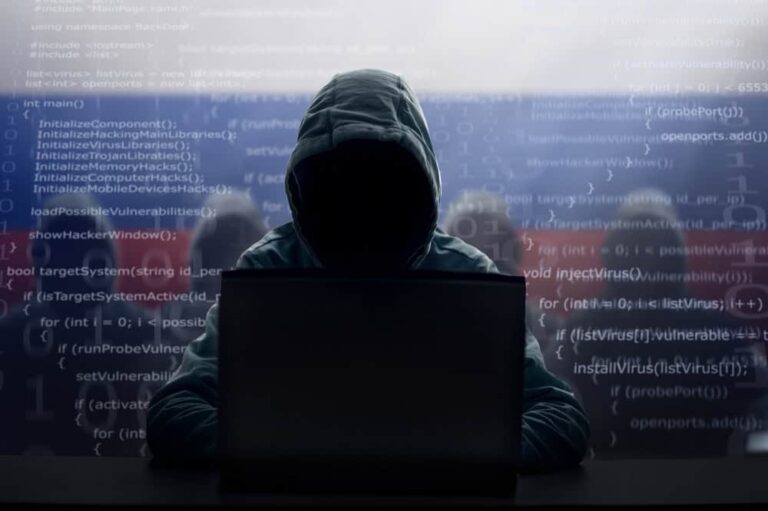The Russian cyber underworld is not merely a shadowy collection of unstructured hackers, but a complex, interconnected community playing an increasingly significant role on the world stage. This, in a nutshell, is how a recent Trend Micro report characterizes this sophisticated digital ecosystem.
Russian hacking collectives consistently dominate headlines, frequently implicated in orchestrating attacks against European and American organizations—particularly those targeting critical infrastructure. These incidents often conspicuously coincide with a nation’s recent support for Ukraine, followed shortly by cyber assaults on governmental institutions or prominent businesses within that same country.
Geopolitics as catalyst
Since the Russia- Ukraine conflict erupted, geopolitical motivations have increasingly driven Russian cybercriminal activities. While some groups claim to operate independently, professing patriotic support for their homeland, numerous others receive direct state sponsorship.
Investigators analyzing cyber incidents typically struggle to attribute attacks to specific groups. Suspicions of Russian involvement may stem from geopolitical connections, yet many attacks remain unclaimed. Moreover, these collectives deliberately shroud their operations and identities in secrecy, consistent with their criminal nature.
Trend Micro researchers have undertaken a comprehensive initiative to map the activities of these Russian-speaking cybercriminal organizations with unprecedented detail and clarity.
Exclusive community
Gaining membership in these circles is notoriously challenging. “To penetrate the inner circle, which includes specialized positions like research analysts within a hacking group, one must first establish trust by successfully executing social engineering attacks on designated targets,” explains Fyodor Yarochkin, co-author and Principal Threat Researcher at Trend Micro.
Yarochkin illuminates why attributing attacks proves so challenging: the distinction between state-sponsored and purely criminal operations has become increasingly blurred. “Russian hackers frequently disguise their origins, not only to maintain a low profile but also to facilitate payment processing. Many countries legally prohibit financial transfers to Russia due to its designation as a state sponsor of terrorism.”
The report meticulously details how state-affiliated and criminal hackers influence and collaborate with one another. “For certain state-oriented missions, the identity of the actual perpetrator—whether government actors, hacktivists, or financially motivated cybercriminals—becomes irrelevant, provided the outcome advances the state’s strategic objectives.” In essence, governments increasingly leverage cybercriminals’ infrastructure and expertise to achieve their aims while maintaining plausible deniability.
‘Highly sophisticated’
In many European countries, DDoS attacks frequently trigger significant digital disruptions. While these incidents may not result in immediate financial damage, they remain far from harmless. Vladimir Kropotov, another Principal Threat Researcher and co-author of the study, notes that such attacks typically fall under hacktivism rather than malware-based cybercrime. Nevertheless, they serve strategic purposes—functioning as reconnaissance tests, diversionary tactics, or instruments of deliberate chaos.
Tip! European countries are facing a storm of pro-Russian hacktivism
A DDoS attack targeting a government website or hospital system disrupts essential services, impacts countless citizens, and necessitates costly recovery operations. Even without explicit ransom demands, these attacks consume vital resources and attention desperately needed elsewhere.
Russian cybercriminals certainly extend their capabilities far beyond DDoS attacks, which are sometimes dismissively characterized as rudimentary operations requiring minimal technical resources. These groups warrant serious consideration—Trend Micro characterizes this community as “highly mature” and “highly sophisticated.”
“The Russian-speaking underground has cultivated a distinctive culture that combines elite technical expertise with strict codes of conduct and reputation-based trust systems facilitating cooperation that rivals legitimate enterprises,” Yarochkin observes. “This isn’t simply an assortment of criminals, but a resilient, interconnected community that has adapted to global pressure while continuing to shape the very evolution of cybercrime.”
In May 2023, for instance, 22 companies within the Danish energy sector suffered simultaneous attacks. These meticulously coordinated cyber operations were attributed to Russia’s military intelligence service, the GRU, specifically its notorious unit known as Sandworm. The attackers expertly exploited vulnerabilities in Zyxel firewalls to gain entry and executed sophisticated malicious code to explore firewall configurations. Such coordination demonstrates significant planning and resources, strongly indicating state-actor involvement.
How can European companies protect themselves?
Trend Micro aims to leverage its groundbreaking findings to enhance corporate preparedness. European legislation addressing critical infrastructure protection, such as NIS2, was implemented relatively recently. However, mere regulatory compliance rarely provides adequate security in today’s threat landscape.
Read also: NIS2 leads to better basic hygiene
Trend Micro recommends integrating three essential components: advanced security platforms, comprehensive threat intelligence, and specialized human expertise offering insights into strategic developments. Only through this multifaceted approach can companies systematically enhance their cyber risk exposure management (CREM).
Know your adversary
The report’s conclusion emphasizes the paramount importance of understanding one’s adversaries. “Understanding the enemy is the first part of defending against them.” Trend Micro’s extensive research demonstrates that Russian hacking groups possess not only exceptional technical prowess but also strategic sophistication and organizational discipline. Whether motivated by financial gain, nationalist sentiment, or both, their methodologies grow increasingly advanced and difficult to counter. Understanding their operational patterns, therefore, represents the fundamental prerequisite for implementing truly effective defense strategies.
